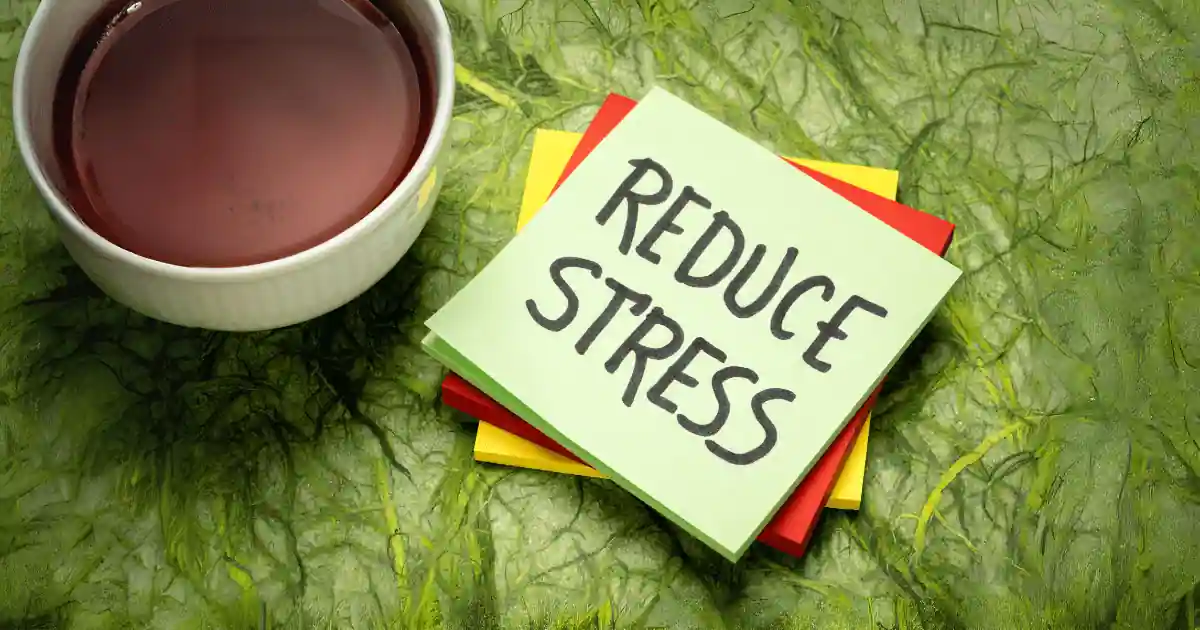This article will explore expert tips to assist you in reducing tension and feeling more at ease. So, if you’re wondering how to reduce stress quickly, read on to discover the top 5 ways to find instant relief.
Is the modern pace of life leaving you little room for respite? Like an unwelcome companion, stress often seems to be just one step behind. It can build without you even realizing it until you’re already overwhelmed. But here’s the good news: you don’t have to set aside an hour for a yoga class or a whole evening for some R&R to reduce stress. Just five minutes can be all it takes to get some reprieve. Let’s explore some quick stress-busting strategies you can weave into even the busiest day.
5 Best Ways to Reduce Stress in Minutes
Stress has become an increasingly common problem in today’s fast-paced world. Fortunately, there are ways to reduce stress quickly and effectively. Learn simple techniques to achieve a calm and peaceful mind. Start feeling better today!
1. Deep Breathing

When was the last time you took a deep breath? Not the shallow ones that we do all day involuntarily, but an intense, full lung expansion with a slow exhale? Deep breathing can work wonders for your stress levels, and here’s why.
Mastering the Technique
- Find a quiet place to sit or lie down.
- Inhale deep via the nostrils, allowing your tummy to rise as you fill your lungs with air to the count of four.
- Hold that breath for a moment.
- Breathe slowly via your mouth for six counts, or longer if comfortable, allowing your abdomen to fall as you empty your lungs.
Why It Works
Deep breathing triggers the body’s relaxation response, reducing heart rate and blood pressure and even improving digestion. With all that going on internally, it’s no wonder stress levels tend to drop.
2. Mindful Meditation

The concept of mindfulness might sound elusive, but it’s pretty simple—and effective. Mindful meditation can be done anywhere and doesn’t require any equipment.
A Quick Session
- Find a comfortable spot, sitting or standing, and close your eyes if satisfied.
- Focus on your breath or a repeated phrase (mantra), ignoring wandering thoughts.
- If thoughts stray, notice them non-judgmentally and gently guide your focus to your breath or mantra.
The Science Behind It
Studies on mindful meditation have demonstrated a reduction in anxiety and depression, with benefits including improved attention, better memory, and lower levels of cortisol, the stress hormone.
Also Read- 9 High Cholesterol Symptoms Neck Pain: Unveiling the Hidden Link
3. Physical Exercise

You’ve heard it before, and with good reason: exercise is a potent stress-buster. It doesn’t have to be a complete workout—it can be as simple as a few quick moves.
Stress-Busting Moves
- Stand up and do 50 jumping jacks.
- Take a brisk walk around the block.
- Hold a wall and sit for one minute.
The Relieving Power of Exercise
Physical activity releases endorphins, your body’s natural mood elevators. It also helps to clear your mind from stressors and improve sleep, which in turn can reduce stress.
Also Read- Quick Weight Loss In 2 Weeks-
4. Listening to Music

Neuroscientists have long studied the effects of music on the brain, particularly when it comes to managing stress. The right kind of tunes can be incredibly soothing.
Recommended Melodies
- Classical music, particularly pieces with a slow tempo and low pitch
- Nature sounds, like crashing waves or gentle rain
- Instrumental music, which can be less distracting than songs with lyrics
Cognitive Benefits
Listening to music can shift brain-wave activity towards the relaxed end of the spectrum, leading to a calmer mental state and helping you absorb stress from your mind.
Also Read- 10 Ways to Reduce the Risk of Heart Disease
5. Time Management

Sometimes, it’s more than the tasks we need to tackle; it’s how we tackle them. Good time management can reduce stress before it even starts.
Prioritization and Delegation
- Please make a list of your most pressing tasks and prioritize them.
- Can you delegate any of the functions? If so, hand them off.
Saying ‘No’ for Your Well-being
- Learn to say ‘no’ to the things that are not serving your top priorities or causing unnecessary stress.
Setting and Sticking to Boundaries
- Be clear about your work hours and resist the urge to work overtime regularly.
- Set boundaries with your time and reserve enough time for self-care.
Conclusion
The key to managing stress is finding what works for you and incorporating it into your daily life. Experiment with these five techniques and discover how even a few minutes a day can make a difference. Remember, taking care of yourself isn’t a luxury—it’s a necessity for a balanced, fulfilling life.
Hi there! I’m content writer and blogger. With over two years of experience, I’ve shared my passion for writing across various platforms. I firmly believe in the transformative power of words and look forward to sharing this journey with you. Enjoy my work!










